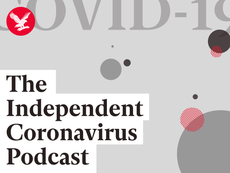Banning wildlife markets will help protect us all from the next great health crisis
Stop The Wildlife Trade: Restricting the trade of wildlife will help prevent the next pandemic and also safeguard the natural world

While spending more time at home, I have been re-reading Joseph Conrad’s Heart of Darkness, a powerful condemnation of the abuse and exploitation of the inhabitants of the Congo. If there were an equivalent darkness today, it would be man’s treatment of wild animals, and the illegal wildlife trade.
For over ten years, I have been engaged in conservation in Africa. Enormous demand for ivory, rare meat and scales has decimated populations of elephants, rhinos and pangolins. This demand has mainly come from China, where these animals are coveted for the supposed medicinal properties of their organs, or by a culture that views the consumption of rare meats as a luxury.
From the financing of terrorists like Al-Shabab to the propagation of corruption and smuggling groups, this demand has done untold damage to the African continent. But now, the illegal wildlife trade’s filthy conclusion, from one of China’s live animal markets, has gone from an animal rights problem to a global health crisis.
By now we have all seen pictures of these markets, with filthy cages and terrified live animals. We have seen the blood-soaked floors and the cross-contaminated tools. And we have seen how a zoonotic virus, that may have come from pangolins or bats at a wet market in Wuhan, has pushed the world economy off a cliff.
As I wrote in another publication last month, it is not discriminatory to criticise the practice, in China and elsewhere, of keeping live animals in unsanitary conditions for consumption. I have long called for action on these markets, and I am pleased that wildlife charity Born Free has launched an open letter with the support of wildlife associations across the world. The letter urges the WHO to draw an “unequivocal link between these markets and their proven threats to human health” and notes that a failure to enforce existing bans on the trade of wild animals has a part of the blame in this crisis.
Of course, it is not only in China that these types of live animal markets exist. There is no place for lazy xenophobia against China, or Asia generally. In fact, polls have shown that banning the sale of wildlife and exotic animals would be supported by a vast majority of Chinese.
It is also true that the emergence zoonotic diseases can never completely be prevented. Nevertheless, such places as live markets where different species are forced into confined spaces together pose an unnecessarily and extraordinarily high risk of transmission.
The Independent has a proud history of environmental campaigning, and must have a role to play in informing the public about the fallacies of “traditional medicine” and danger of live markets, from which now two pandemics are likely to have emerged this century alone: Sars in 2002, and Covid-19 in 2019.
We commend Born Free’s coalition of wildlife charities and conservationists and we look forward to working with them further on this urgent matter. The elephant charity of which I am patron, Space for Giants, has also launched a commendable information campaign on the dangers of the wildlife trade. If you, reader, are equally concerned by this horrific situation, I urge you to study both their appeals.
My heart goes out to all those people fighting coronavirus right now. They should not struggle in vain. We weren’t prepared for this virus, but we can prevent the next one. For this we must ban the wildlife markets.
Evgeny Lebedev is proprietor of The Independent and Evening Standard







Join our commenting forum
Join thought-provoking conversations, follow other Independent readers and see their replies